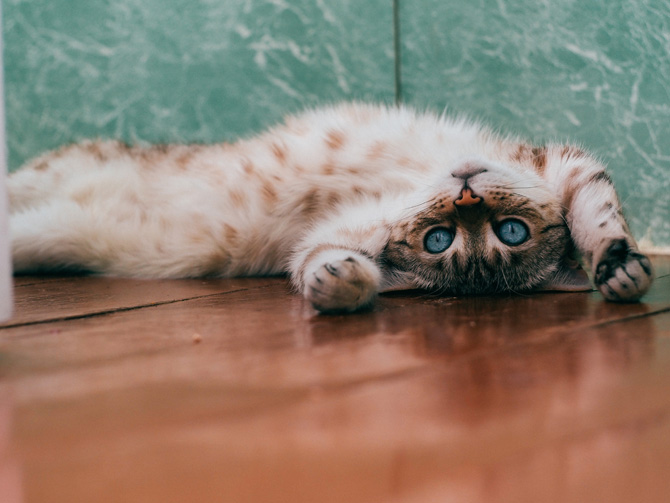Did you know that February is National Cat Health Month? As such, there’s not a better or more appropriate time to focus on the health and happiness of our feline friends.
As pet professionals, you’re in the puurfect position to share a few handy hints and tips with cat owners to help them keep their meowing mates healthy.
General health and wellbeing tips
Encourage cat owners to be the best pet parents they can be by discussing the actions they can take to help support their kitty’s health. For example, you can talk about the importance of microchipping and vaccinating. You might also discuss the ins and outs of having a cat desexed. This can be a tricky topic for some people. However, by simply discussing the key pros and cons you can help your clients to make an informed decision.
Flea, tick and worm prevention is also important in cats. Again, you can help cat owners to understand the various options available to them and help them select a preventative treatment regimen that works best for them.
Diet advice
National Cat Health Month may also be a useful excuse to chat with clients about the essential elements of a cat’s diet. According to the RSPCA, cats have very special nutritional requirements. This is because the way in which they metabolise food differs from that of many other animals.
An important thing to remind cat owners of is the fact cats need meat. Yet while cats are carnivores, they require more than just meat. However, they do not easily digest plant-based foods. Cats also require higher levels of protein than other pets, such as dogs for example. Additionally, our feline friends need taurine, an important amino acid that assists with heart and eye health.
Aside from having continual access to clean, fresh water, it may also be useful to remind cat owners that most felines prefer to eat little and often. Indeed, it is recommended that cats eat five small meals a day rather than one or two larger meals. And yet, recent research indicates that overweight or hungry cats may be better off with a once-daily feed. So, keep this new research in mind when talking about cat diets.
Know the signs of a healthy cat
If you only do one thing this National Cat Health Month- promote the key indicators of a healthy cat. By highlighting the telltale signs of a healthy cat, you can help cat owners to recognise when their kitty may be feeling under the weather. This will enable them to take early action and help their purring pal on the road to recovery.
Signs to watch out for include:
- Bright eyes—Cats’ eyes should be clear and bright. Discharge or crusting around the eye area could signal a health issue and should be checked by a vet.
- Fresh breath—Stinky cat breath could indicate poor dental hygiene. Encourage owners to lift up their cats’ lips and look to see if the teeth are discoloured. Ideally, they want to see white teeth and nice pink gums.
- Shiny coat—Just like a human’s skin, a cat’s coat is linked to his or her general health. A healthy cat should display a shiny, matt-free coat.
- Optimum weight—Healthy cats are active cats and, as such, they should not be overweight (or underweight, for that matter!). Concerned cat owners can use the WSAVA Body Condition Score to check their cat’s weight.
- Healthy litter box habits—Cats are clean animals, so urinating or defecating outside the litter box might be an indication of a problem. Apart from keeping a check on their feline’s litter box, owners can keep an eye on their cat’s stools; they should be small and firm. Loose stools may suggest a digestive upset.
Of course, on the opposite side of the coin, it can also be useful for owners to recognise when their cat is sick. You can discuss common indicators such as increased vocalization, changes in toilet or grooming habits, as well as lethargy and weight changes.
Together we can help keep our pets healthy and pet owners well-informed!
Related posts:
- 4 common cat injuries and how to treat them
- Arthritis in cats and dogs
- Keeping your clients’ cats safe in winter
- Heatstroke in cats: what you need to know
Information sources:
Do cats have special nutritional requirements? RSPCA. Sept 11, 2019. Accessed online via: https://kb.rspca.org.au/knowledge-base/do-cats-have-special-nutritional-requirements/
Latest posts by Liz Walden (see all)
- Pet health: Medicinal cannabis for pets - December 27, 2021
- What pet business insurance do I need? - November 17, 2021
- Pet sitters: how to take time off - November 15, 2021










Leave A Comment